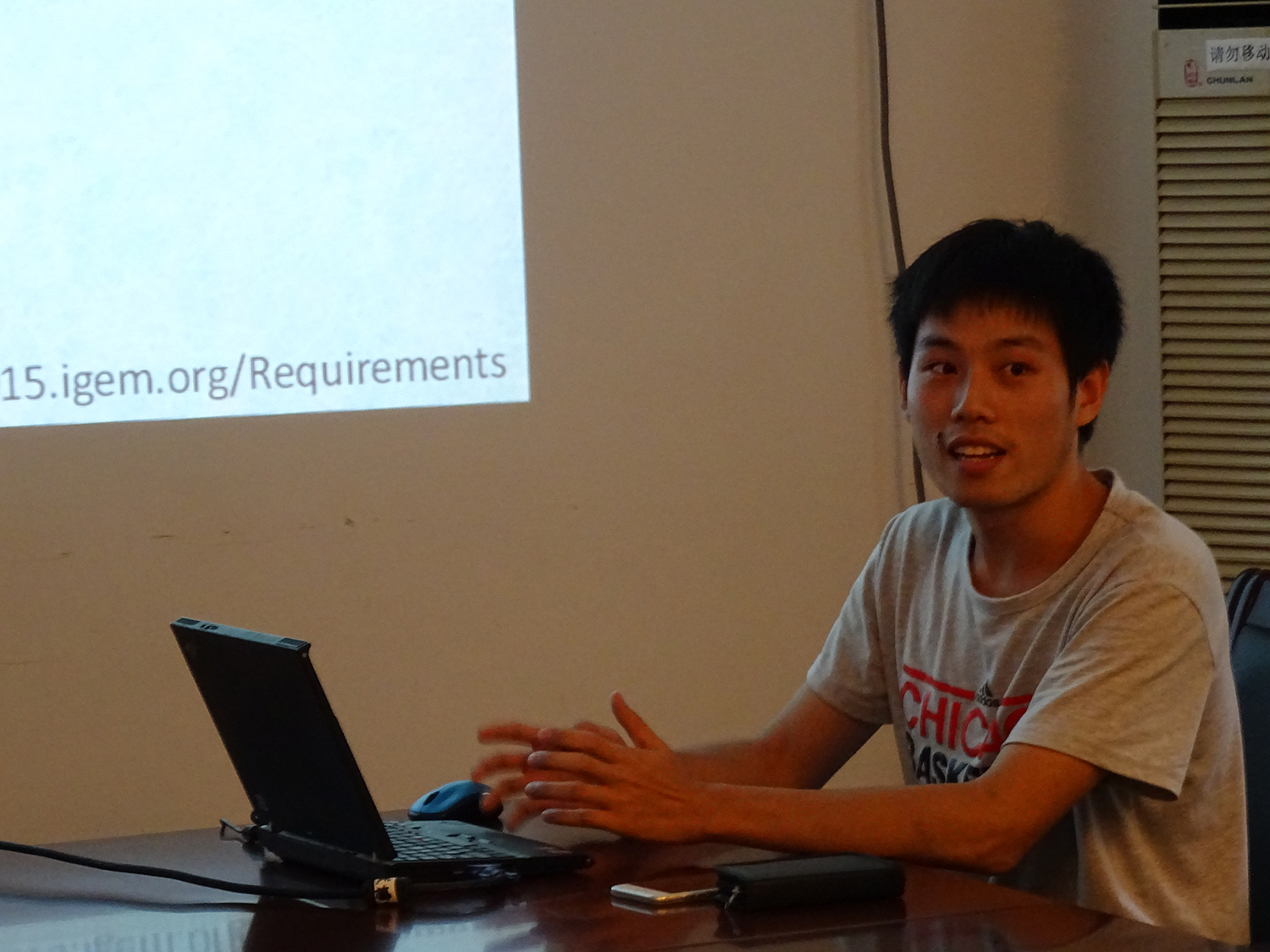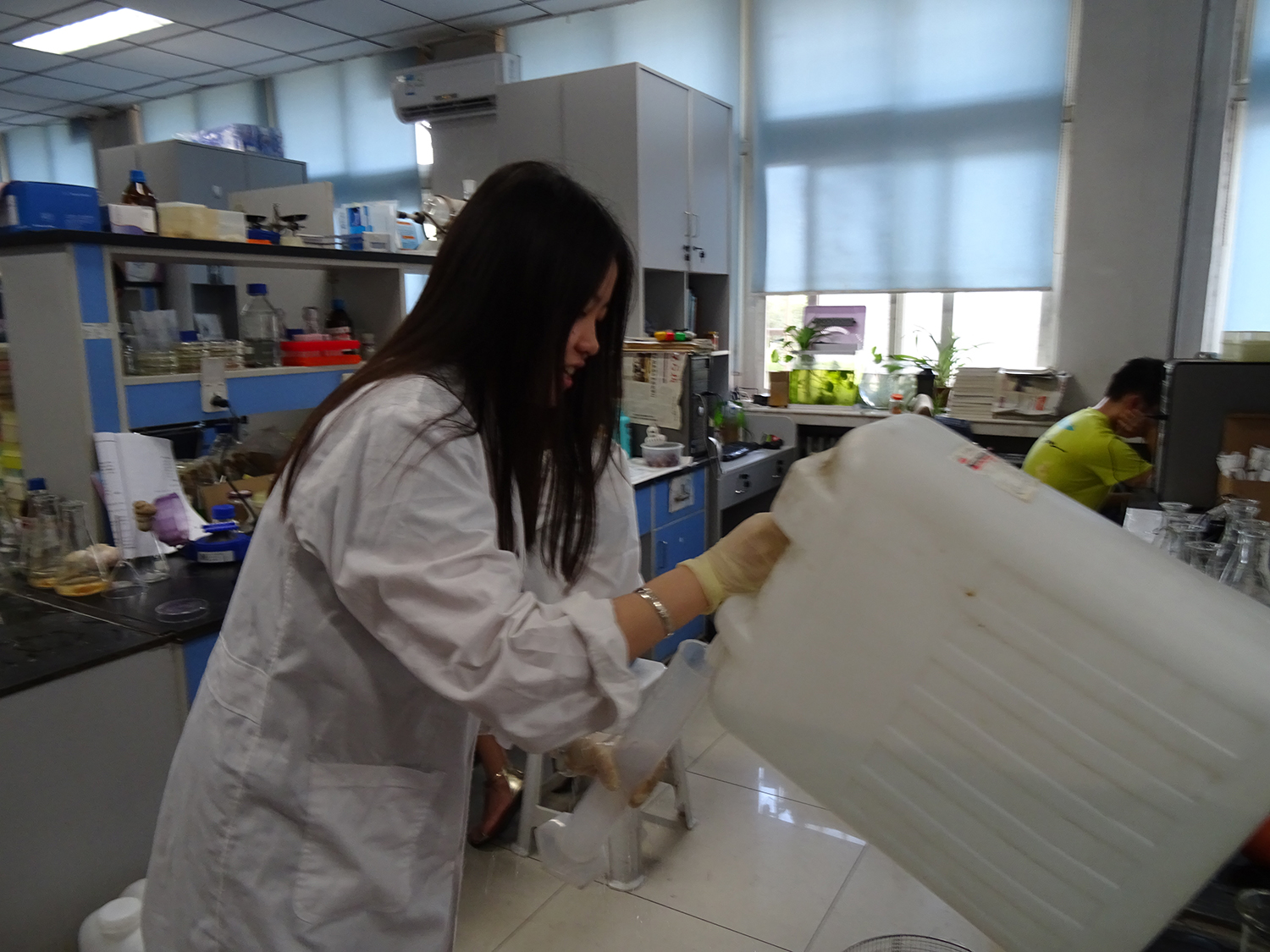
Team Nankai 2015 is consist of 9 junior students, 11 senior students and 5 instructors. With our team established in March 2015, we are more than excited to join the big community of iGEM.
The idea of synthetic biology attracted us in a way that other fields of study never could, and our passion about science is the engine that has led us all the way through obstacles and setbacks. We are persevering and capable as a research team. However, at spare times, we are just a group of fun-loving young college students. There is always an atmosphere of anticipation that we could blend into iGEM community. So we are looking forward to seeing you at the Giant Jamboree! Want to know more about us? click here……











